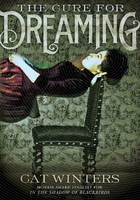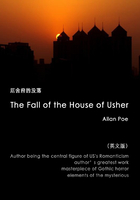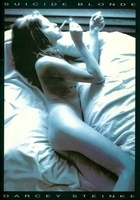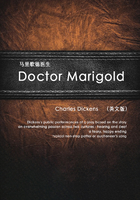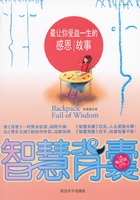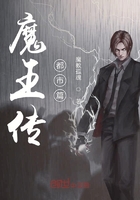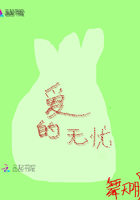I let him take me to a restaurant of his choice, but on the way I bought a paper. When we had ordered our dinner, I propped it against a bottle of St. Galmier and began to read. We ate in silence. I felt him looking at me now and again, but I took no notice. I meant to force him to conversation.
"Is there anything in the paper?" he said, as we approached the end of our silent meal.
I fancied there was in his tone a slight note of exasperation. "I always like to read the on the drama," I said. I folded the paper and put it down beside me.
"I've enjoyed my dinner," he remarked.
"I think we might have our coffee here, don't you?" "Yes."
We lit our cigars. I smoked in silence. I noticed that now and then his eyes rested on me with a faint smile of amusement. I waited patiently.
"What have you been up to since I saw you last?" he asked at length.
I had not very much to say. It was a record of hard work and of little adventure; of experiments in this direction and in that; of the gradual acquisition of the knowledge of books and of men. I took care to ask Strickland nothing about his own doings. I showed not the least interest in him, and at last I was rewarded. He began to talk of himself. But with his poor gift of expression he gave but indications of what he had gone through, and I had to fill up the gaps with my own imagination. It was tantalising to get no more than hints into a character that interested me so much. It was like making one's way through a mutilated manuscript. I received the impression of a life which was a bitter struggle against every sort of difficulty; but I realised that much which would have seemed horrible to most people did not in the least affect him. Strickland was distinguished from most Englishmen by his perfect indifference to comfort; it did not irk him to live always in one shabby room; he had no need to be surrounded by beautiful things. I do not suppose he had ever noticed how dingy was the paper on the wall of the room in which on my first visit I found him. He did not want arm-chairs to sit in; he really felt more at his ease on a kitchen chair. He ate with appetite, but was indifferent to what he ate; to him it was only food that he devoured to still the pangs of hunger; and when no food was to be had he seemed capable of doing without. I learned that for six months he had lived on a loaf of bread and a bottle of milk a day. He was a sensual man, and yet was indifferent to sensual things. He looked upon privation as no hardship. There was something impressive in the manner in which he lived a life wholly of the spirit.
When the small sum of money which he brought with him from London came to an end he suffered from no dismay. He sold no pictures; I think he made little attempt to sell any; he set about finding some way to make a bit of money. He told me with grim humour of the time he had spent acting as guide to Cockneys who wanted to see the night side of life in Paris; it was an occupation that appealed to his sardonic temper and somehow or other he had acquired a wide acquaintance with the more disreputable quarters of the city. He told me of the long hours he spent walking about the Boulevard de la Madeleine on the look-out for Englishmen, preferably the worse for liquor, who desired to see things which the law forbade. When in luck he was able to make a tidy sum; but the shabbiness of his clothes at last frightened the sight-seers, and he could not find people adventurous enough to trust themselves to him. Then he happened on a job to translate the advertisements of patent medicines which were sent broadcast to the medical profession in England. During a strike he had been employed as a house-painter.
Meanwhile he had never ceased to work at his art; but, soon tiring of the studios, entirely by himself. He had never been so poor that he could not buy canvas and paint, and really he needed nothing else. So far as I could make out, he painted with great difficulty, and in his unwillingness to accept help from anyone lost much time in finding out for himself the solution of technical problems which preceding generations had already worked out one by one. He was aiming at something, I knew not what, and perhaps he hardly knew himself; and I got again more strongly the impression of a man possessed. He did not seem quite sane. It seemed to me that he would not show his pictures because he was really not interested in them. He lived in a dream, and the reality meant nothing to him. I had the feeling that he worked on a canvas with all the force of his violent personality, oblivious of everything in his effort to get what he saw with the mind's eye; and then, having finished, not the picture perhaps, for I had an idea that he seldom brought anything to completion, but the passion that fired him, he lost all care for it. He was never satisfied with what he had done; it seemed to him of no consequence compared with the vision that obsessed his mind.
"Why don't you ever send your work to exhibitions?" I asked. "I should have thought you'd like to know what people thought about it."
"Would you?"
I cannot describe the unmeasurable contempt he put into the two words.
"Don't you want fame? It's something that most artists haven't been indifferent to."
"Children. How can you care for the opinion of the crowd, when you don't care twopence for the opinion of the individual?"
"We're not all reasonable beings," I laughed.
"Who makes fame? Critics, writers, stockbrokers, women." "Wouldn't it give you a rather pleasing sensation to think of people you
didn't know and had never seen receiving emotions, subtle and passionate, from the work of your hands? Everyone likes power. I can't imagine a more wonderful exercise of it than to move the souls of men to pity or terror."
"Melodrama."
"Why do you mind if you paint well or badly?" "I don't. I only want to paint what I see."
"I wonder if I could write on a desert island, with the certainty that no eyes but mine would ever see what I had written."
Strickland did not speak for a long time, but his eyes shone strangely, as though he saw something that kindled his soul to ecstasy.
"Sometimes I've thought of an island lost in a boundless sea, where I could live in some hidden valley, among strange trees, in silence. There I think I could find what I want."
He did not express himself quite like this. He used gestures instead of adjectives, and he halted. I have put into my own words what I think he wanted to say.
"Looking back on the last five years, do you think it was worth it?" I asked.
He looked at me, and I saw that he did not know what I meant. I explained.
"You gave up a comfortable home and a life as happy as the average. You were fairly prosperous. You seem to have had a rotten time in Paris. If you had your time over again would you do what you did?"
"Rather."
"Do you know that you haven't asked anything about your wife and children? Do you never think of them?"
"No."
"I wish you weren't so damned monosyllabic. Have you never had a moment's regret for all the unhappiness you caused them?"
His lips broke into a smile, and he shook his head.
"I should have thought sometimes you couldn't help thinking of the past. I don't mean the past of seven or eight years ago, but further back still, when you first met your wife, and loved her, and married her. Don't you remember the joy with which you first took her in your arms?"
"I don't think of the past. The only thing that matters is the everlasting present."
I thought for a moment over this reply. It was obscure, perhaps, but I thought that I saw dimly his meaning.
"Are you happy?" I asked. "Yes."
I was silent. I looked at him reflectively. He held my stare, and presently a sardonic twinkle lit up his eyes.
"I'm afraid you disapprove of me?"
"Nonsense," I answered promptly; "I don't disapprove of the boa-constrictor; on the contrary, I'm interested in his mental processes."
"It's a purely professional interest you take in me?"
"Purely."
"It's only right that you shouldn't disapprove of me. You have a despicable character."
"Perhaps that's why you feel at home with me," I retorted.
He smiled dryly, but said nothing. I wish I knew how to describe his smile. I do not know that it was attractive, but it lit up his face, changing the expression, which was generally sombre, and gave it a look of not ill-natured malice. It was a slow smile, starting and sometimes ending in the eyes; it was very sensual, neither cruel nor kindly, but suggested rather the inhuman glee of the satyr. It was his smile that made me ask him:
"Haven't you been in love since you came to Paris?"
"I haven't got time for that sort of nonsense. Life isn't long enough for love and art."
"Your appearance doesn't suggest the anchorite." "All that business fills me with disgust." "Human nature is a nuisance, isn't it?" I said. "Why are you sniggering at me?"
"Because I don't believe you." "Then you're a damned fool."
I paused, and I looked at him searchingly. "What's the good of trying to humbug me?" I said. "I don't know what you mean."
I smiled.
"Let me tell you. I imagine that for months the matter never comes into your head, and you're able to persuade yourself that you've finished with it for good and all. You rejoice in your freedom, and you feel that at last you can call your soul your own. You seem to walk with your head among the stars. And then, all of a sudden you can't stand it any more, and you notice that all the time your feet have been walking in the mud. And you want to roll yourself in it. And you find some woman, coarse and low and vulgar, some beastly creature in whom all the horror of sex is blatant, and you fall upon her like a wild animal. You drink till you're blind with rage."
He stared at me without the slightest movement.I held his eyes with mine.I spoke very slowly.
"I'll tell you what must seem strange, that when it's over you feel so extraordinarily pure. You feel like a disembodied spirit, immaterial; and you seem to be able to touch beauty as though it were a palpable thing; and you feel an intimate communion with the breeze, and with the trees breaking into leaf, and with the iridescence of the river. You feel like God. Can you explain that to me?"
He kept his eyes fixed on mine till I had finished, and then he turned away. There was on his face a strange look, and I thought that so might a man look when he had died under the torture. He was silent. I knew that our conversation was ended.

